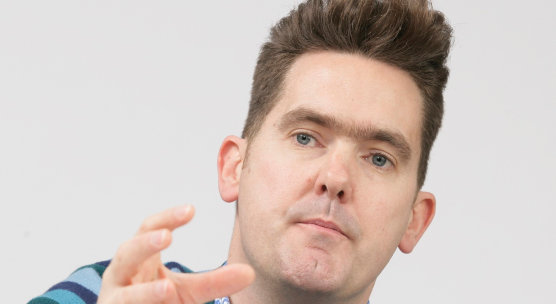Dundee scientists find DNA “molecular scissors” are vital in preventing cancers
Published On Mon 1 Feb 2016 by Grant Hill

Scientists at the University of Dundee have discovered that “molecular scissors” that repair damaged and abnormal DNA are critical for keeping cancers at bay.
The laboratory of Professor John Rouse at the University’s Medical Research Council Protein Phosphorylation and Ubiquitlation Unit (MRC-PPU) first discovered that a protein called FAN1 was important for cutting and repairing damaged DNA in our cells in 2010.
Recent work carried out by Dr Christophe Lachaud under the direction of Professor Rouse have shown that FAN1 carries out another important task separate from repairing DNA, but which is vitally important for preventing cancers.
The team showed that FAN1 plays an important role during the copying of chromosomes that occurs whenever cells divide. In particular, the ability of FAN1 to recognise and cut special types of abnormal structures inside cells during the copying of DNA is important for preventing cancers, particularly of the lungs, liver and pancreas. Moreover, it appears that certain cancers may be caused by failure of FAN1 to cut DNA in the way it is supposed to.
“The DNA in our cells is like an instruction manual for the proper working of each cell,” explained Professor Rouse. “Every time cells divide they need to make a perfect copy of all of their chromosomes, collectively called the genome, so that the next generation of cells also have a proper instruction manual.
“In the process of copying DNA, the machinery responsible for doing this often encounters roadblocks – obstacles that stop the progression of the copying machinery and result in abnormal, potentially toxic DNA structures.
“We showed that Fan1 can recognise these dangerous structures, and uses its cutting activity to makes them less toxic. We found that when we switch off the ability of Fan1 to cut these structures, the genome starts to become abnormal and breaks apart which means the instruction manual has become corrupted. Switching off the cutting ability of FAN1 leads to cancers, such as liver cancer and lung cancer.
“Other scientists have reported that Fan1 is mutated in pancreatic cancers, and we showed that in these cancers Fan1 is not able to recognise the abnormal structures that need to be cut. This leads the genome of these cells to become abnormal accounting for the cancers.”
As the findings have implications for treating cancers, Professor Rouse and his team will now try to discover the ‘Achilles heel’ of cancers in which FAN1 doesn’t work properly. If they are able to find a drug which is only toxic to cells that are defective in Fan1, these drugs might be effective in killing the cancer cells caused by mutations in Fan1 without affecting the normal cells.
Most of the work on FAN1 was carried out by Dr Lachaud, with help from Dr Alberto Moreno in the laboratory of Professor Julian Blow, a world-renowned expert on the process of copying DNA during cell division also based in the School of Life Sciences at Dundee.
The research is published in the latest online edition of the journal Science. The work was funded by the Medical Research Council.
Notes to editors:
The Medical Research Council is at the forefront of scientific discovery to improve human health. Founded in 1913 to tackle tuberculosis, the MRC now invests taxpayers’ money in some of the best medical research in the world across every area of health.
Thirty-one MRC-funded researchers have won Nobel prizes in a wide range of disciplines, and MRC scientists have been behind such diverse discoveries as vitamins, the structure of DNA and the link between smoking and cancer, as well as achievements such as pioneering the use of randomised controlled trials, the invention of MRI scanning, and the development of a group of antibodies used in the making of some of the most successful drugs ever developed.
Today, MRC-funded scientists tackle some of the greatest health problems facing humanity in the 21st century, from the rising tide of chronic diseases associated with ageing to the threats posed by rapidly mutating micro-organisms. www.mrc.ac.uk
The University of Dundee is the top ranked University in the UK for biological sciences, according to the 2014 Research Excellence Framework.
Dundee is internationally recognised for the quality of its teaching and research and has a core mission to transform lives across society. More than 17,000 students are enrolled at Dundee, helping make the city Scotland’s most student-friendly.
The University is the central hub for a multi-million pound biotechnology sector in the east of Scotland, which now accounts for 16% of the local economy. www.dundee.ac.uk
For media enquiries contact:
Grant Hill
Press Officer
University of Dundee
Nethergate, Dundee, DD1 4HN
Tel: +44 (0)1382 384768
Mobile: 07854 953277
Email: g.hill@dundee.ac.uk